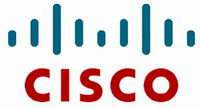Cisco and Webex: It Takes Two to Tango with Microsoft

Cisco's plans to buy Webex will create a complicated relationship with Microsoft where the two giants must both cooperate and compete.
Cisco Systems' planned $2.9 billion acquisition of leading Web conferencing provider Webex sets up a complex and interesting dance between itself and Microsoft as both vendors work through the need to both cooperate and compete in the same customer accounts.
Cisco will compete directly with Microsoft in the Web conferencing and shared applications market, where it is likely to gain the upper hand thanks to Webex's dominance with its subscription-based collaboration offerings.
Webex in the collaboration services market has "over 65 percent market share over the number two Microsoft and Citrix in third place," said Webex Chairman Subrah Iyar in a conference call on March 15.
The Webex online conferencing and application sharing technologies bring strong synergies to Cisco's Unified Communications initiative, where both Cisco and Microsoft are escalating their competition.
"Unified Communications is the only area in which we're competing," acknowledged Charlie Giancarlo, Cisco's chief development officer. "But at the same time we've heard loud and clear from customers that we need to interoperate. In 10 percent of the cases we'll still be interoperating where we're also competing."
Cisco in fact earlier this month announced it will expand Microsoft interoperability to allow its Unified Communications products to work with Microsoft Exchange 2007, Microsoft Live Communications Server 2005 and Microsoft Office Communicator.
But industry analyst Jan Dawson, at IT consulting and market research firm Ovum, does not view it that benignly.
Dawson, vice president of the London company's U.S. Enterprise Practice views the acquisition as the latest "front in the war between Cisco and Microsoft over Unified Communications. This allows Cisco to leapfrog into first place in the Web conferencing space, ahead of Microsoft in the second spot," said Dawson.
While both vendors vie for dominance in the nascent market for unified communications, the real top dog to unseat may not be either of them, believes Frank Dzubeck, president of Communication Network Architects in Washington, D.C.
"It's a misnomer that Cisco is competing directly with Microsoft. From a strategic point of view Webex is a collaborative application that is a network, Web-based product. Microsoft is a desktop company getting into mobile – they are not a Web applications company. The guy you have to look at for competing in the future is Google. They are in the business of Web-based applications," he said.
For Cisco, achieving the synergies it hopes for with the Webex acquisition, expected to close between May and July, could be trickier than past acquisitions. That's because the Webex subscription, SAAS (software as a service) business model is distinctly different than Cisco's product sales.
"Cisco discounts the cost of their telephony equipment because they know the margins on their switches and routers - will make up for it - ," noted Nora Freedman, industry analyst with IDC in Framingham, Mass. "For every dollar spent on telephony, three to five dollars are spent on the network. In a Web-based model that doesn't translate over. So that doesn't seem to mesh with a Web-based client."
Cisco's Giancarlo acknowledged the differences in business models, but he believes Cisco can learn from Webex's approach.
"We want to take a studied approach to integration. The synergies in the first year will be around sales and distribution. They're primarily North American focused. We're highly global. They're primarily - targeting - small and medium businesses, but we can help them with the departmental enterprise," he said.
Cisco, which will allow Webex to operate with some autonomy, will take longer to integrate Webex and its own Unified Communications technologies. "In the product area we will take two to three years to integrate," Giancarlo said.
Webex's Iyar will report to Giancarlo, who is also president of Cisco's Linksys business unit. Giancarlo expects synergies with that unit as well.
"Linksys 1 is a hosted solution that has a great offering in voice and video communications. Webex has great application sharing and online collaboration. They do have voice and video, but it's probably not the strongest part. Details need to be worked out, but this is an obvious area of focus," he said.
As those details are ironed out, it will be imperative for Cisco to continue to keep customers' needs in the forefront - especially as Cisco works to position the network as a platform for collaborative applications.
"Cisco still owns the network; Microsoft is pervasive on the desktop," said Freedman. "If you're Merrill Lynch, you won't throw out legacy infrastructure from both these vendors. They're both attacking Unified Communications from a greenfield perspective, but there are still a bunch of existing customers who will demand they work together."
Copyright 2007 by Ziff Davis Media, Distributed by United Press International





















